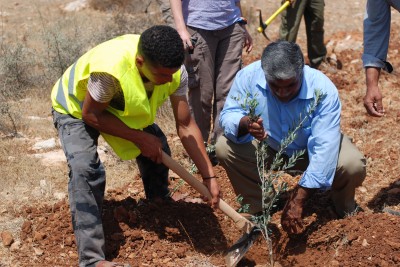Category: Journals
-
Women Studies Center of Nablus: Women’s rights are Palestinian rights
by Jonas Weber 18 February 2012 | International Solidarity Movement, West Bank “We rented this house since a year back,” says Randa Bashir as she looked around in the brightly lit meeting room at the Women Studies Centre in Nablus. Like most Palestinian houses it is designed to keep cool during the warmer time of the year…
-
Solidarity with Khader Adnan in the No Go Zone
by Nathan Stuckey 14 February 2012 | International Solidarity Movement, West Bank Two months ago, few of us knew the name Khader Adnan. Today, he is an inspiration to all of us. Two months ago he was kidnapped from his home by Israel. He was charged with no crime. He was abused by his captors…
-
Turtles in Aqraba
by Jonas Weber 10 February 2012 | International Solidarity Movement, West Bank “Hurry up you turtles!” Wael yelled in the distance. He had suddenly turned this walk into some kind of contest. We skipped across the rocky landscape of Palestine, dirty and with the sun in our eyes. We were planting trees in the small…

